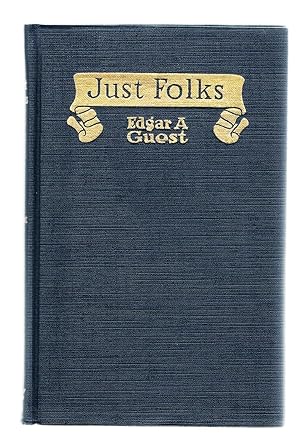The Boy Soldier
byThe Boy Soldier begins with a warm and familiar scene—an energetic child no older than three, wrapped in laughter and curiosity, engaging in pretend battle with the most accessible “enemy” he knows: his father. In his tiny hands, a beard becomes a rope to pull, buttons become targets to poke, and a watch becomes the prize he proudly claims. These harmless skirmishes are not fought with anger but with love, as the child’s playful assaults are absorbed with joy. The father, although seemingly under siege, feels nothing but deep affection. It’s a surrender not of strength, but of heart. He watches this little soldier grow bolder, each tug and climb a badge of trust, a signal that love doesn’t always arrive gently—it sometimes charges in with messy hair and muddy shoes.
There’s a rhythm in these moments, one that echoes through generations. As the father kneels to the boy’s height, he sees glimpses of himself as a child, caught in the same dance with his own father. This continuity becomes a comfort. It suggests that love between father and son is not taught but lived, often without words. The poem quietly acknowledges that someday this boy will grow, and he too may sit in a chair, grinning as small hands tug at his shirt or swing from his arms. In that time, the soldier will become the general, passing down laughter, patience, and stories wrapped in joy. The cycle will turn, not in grand declarations, but in the daily simplicity of shared time.
As the poem transitions into other themes, My Land arrives with vivid imagery of a country shaped not only by landscape but by character. This homeland is not perfect because of its wealth or power, but because of the goodness found in its people. They are hardworking, honest, and brave—not in grand gestures but in their day-to-day lives. It is a place where differences don’t divide. Instead, they enrich. Children grow up knowing freedom not only as a word but as a lived truth. The flag flying high isn’t just a symbol—it’s a reflection of every hand that tilled the soil, built the homes, and raised the songs sung in small towns and wide fields.
Daddies continues this emotional thread by celebrating the little things that define fatherhood. A child’s hug after a long day. The shared silence during bedtime. These are not grand, world-changing moments. But to the father, they are more valuable than crowns or ceremonies. Power may come with titles, but joy lives in routines. A dad’s importance isn’t defined by how many people know his name, but by how many small hands reach for his. In this gentle narrative, being a father isn’t a role—it’s a reward. It demands presence more than perfection and offers richness that kings may envy but never fully understand.
In Loafing, the tone shifts again, now seeking stillness. The poem paints a world away from alarms, deadlines, and heavy shoes. It’s a return to the earth, not in conquest but in communion. Under leafy branches and near quiet rivers, one doesn’t need permission to rest. Here, thoughts breathe freely. The mind, often bound by constant doing, finally finds room just to be. Nature offers no judgments, only shade and rhythm. In this quiet, something healing unfolds—not loudly, but enough to restore what noise has worn thin.
Then comes When Father Played Baseball, offering a humorous lens on pride and nostalgia. The father, eager to show he’s still got it, swings with enthusiasm only to discover that youth, once gone, is not easily summoned. A pulled muscle or two later, he laughs with the same people who once watched him hit home runs. The joke is not cruel—it’s affectionate. He may have slowed down, but his spirit remains quick. And in that game, surrounded by family, the pain is outshined by presence. It becomes clear that age isn’t about what one can still do—it’s about how one keeps showing up.
Finally, About Boys circles back to the mischief of youth. It acknowledges what every parent knows—boys run fast, fall often, and rarely ask before climbing. But behind the scraped knees and sudden shouts is a heart open to learning and growing. These early adventures, even the reckless ones, build courage, curiosity, and empathy. They are the building blocks of character. The poem doesn’t ask boys to be still—it asks others to understand that their chaos is often just life discovering itself.
Each piece in Just Folks shares a different slice of human experience, but together they form a fuller truth. Life is richest not in spotlighted achievements but in quiet rooms, grassy fields, and homes filled with noise and love. Whether raising a child, recalling youth, or resting beside a stream, there is wisdom in simplicity. The Boy Soldier reminds us that the heart is often won by the smallest hands—and that these early battles of love are the ones we carry with us the longest.

